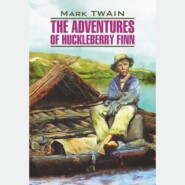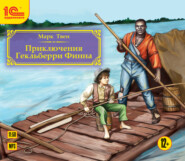По всем вопросам обращайтесь на: info@litportal.ru
(©) 2003-2025.
✖
Mark Twain's Speeches
Настройки чтения
Размер шрифта
Высота строк
Поля
Then this friend said to me: “Now, I will tell you about that. About sixty years ago that man was a young fellow of twenty-three, and had just come home from a three years’ whaling voyage. He came into that village of his, happy and proud because now, instead of being chief mate, he was going to be master of a whaleship, and he was proud and happy about it.
“Then he found that there had been a kind of a cold frost come upon that town and the whole region roundabout; for while he had been away the Father Mathew temperance excitement had come upon the whole region. Therefore, everybody had taken the pledge; there wasn’t anybody for miles and miles around that had not taken the pledge.
“So you can see what a solitude it was to this young man, who was fond of his grog. And he was just an outcast, because when they found he would not join Father Mathew’s Society they ostracized him, and he went about that town three weeks, day and night, in utter loneliness – the only human being in the whole place who ever took grog, and he had to take it privately.
“If you don’t know what it is to be ostracized, to be shunned by your fellow-man, may you never know it. Then he recognized that there was something more valuable in this life than grog, and that is the fellowship of your fellow-man. And at last he gave it up, and at nine o’clock one night he went down to the Father Mathew Temperance Society, and with a broken heart he said: ’Put my name down for membership in this society.’
“And then he went away crying, and at earliest dawn the next morning they came for him and routed him out, and they said that new ship of his was ready to sail on a three years’ voyage. In a minute he was on board that ship and gone.
“And he said – well, he was not out of sight of that town till he began to repent, but he had made up his mind that he would not take a drink, and so that whole voyage of three years was a three years’ agony to that man because he saw all the time the mistake he had made.
“He felt it all through; he had constant reminders of it, because the crew would pass him with their grog, come out on the deck and take it, and there was the torturous Smell of it.
“He went through the whole, three years of suffering, and at last coming into port it was snowy, it was cold, he was stamping through the snow two feet deep on the deck and longing to get home, and there was his crew torturing him to the last minute with hot grog, but at last he had his reward. He really did get to shore at fast, and jumped and ran and bought a jug and rushed to the society’s office, and said to the secretary:
“‘Take my name off your membership books, and do it right away! I have got a three years’ thirst on.’
“And the secretary said: ‘It is not necessary. You were blackballed!’”
Watterson And Twain As Rebels
Address at the celebration of Abraham Lincoln’s 92nd birthday anniversary, Carnegie hall, February 11, 1901, to raise funds for the Lincoln memorial university at Cumberland Gap, Tenn.
Ladies and gentlemen, – The remainder of my duties as presiding chairman here this evening are but two – only two. One of them is easy, and the other difficult. That is to say, I must introduce the orator, and then keep still and give him a chance. The name of Henry Watterson carries with it its own explanation. It is like an electric light on top of Madison Square Garden; you touch the button and the light flashes up out of the darkness. You mention the name of Henry Watterson, and your minds are at once illuminated with the splendid radiance of his fame and achievements. A journalist, a soldier, an orator, a statesman, a rebel. Yes, he was a rebel; and, better still, now he is a reconstructed rebel.
It is a curious circumstance, a circumstance brought about without any collusion or prearrangement, that he and I, both of whom were rebels related by blood to each other, should be brought here together this evening bearing a tribute in our hands and bowing our heads in reverence to that noble soul who for three years we tried to destroy. I don’t know as the fact has ever been mentioned before, but it is a fact, nevertheless. Colonel Watterson and I were both rebels, and we are blood relations. I was a second lieutenant in a Confederate company for a while – oh, I could have stayed on if I had wanted to. I made myself felt, I left tracks all around the country. I could have stayed on, but it was such weather. I never saw such weather to be out-of-doors in, in all my life.
The Colonel commanded a regiment, and did his part, I suppose, to destroy the Union. He did not succeed, yet if he had obeyed me he would have done so. I had a plan, and I fully intended to drive General Grant into the Pacific Ocean – if I could get transportation. I told Colonel Watterson about it. I told him what he had to do. What I wanted him to do was to surround the Eastern army and wait until I came up. But he was insubordinate; he stuck on some quibble of military etiquette about a second lieutenant giving orders to a colonel or something like that. And what was the consequence? The Union was preserved. This is the first time I believe that that secret has ever been revealed.
No one outside of the family circle, I think, knew it before; but there the facts are. Watterson saved the Union; yes, he saved the Union. And yet there he sits, and not a step has been taken or a movement made toward granting him a pension. That is the way things are done. It is a case where some blushing ought to be done. You ought to blush, and I ought to blush, and he – well, he’s a little out of practice now.
Robert Fulton Fund
Address made on the evening of April 19, 1906.
Mr. Clemens had been asked to address the association by Gen. Frederick D. Grant, president. He was offered a fee of $1,000, but refused it, saying:
“I shall be glad to do it, but I must stipulate that you keep the $1,000, and add it to the Memorial Fund as my contribution to erect a monument in New York to the memory of the man who applied steam to navigation.”
At this meeting Mr. Clemens made this formal announcement from the platform:
“This is my last appearance on the paid platform. I shall not retire from the gratis platform until I am buried, and courtesy will compel me to keep still and not disturb the others. Now, since I must, I shall say good-bye. I see many faces in this audience well known to me. They are all my friends, and I feel that those I don’t know are my friends, too. I wish to consider that you represent the nation, and that in saying good-bye to you I am saying good-bye to the nation. In the great name of humanity, let me say this final word: I offer an appeal in behalf of that vast, pathetic multitude of fathers, mothers, and helpless little children. They were sheltered and happy two days ago. Now they are wandering, forlorn, hopeless, and homeless, the victims of a great disaster. So I beg of you, I beg of you, to open your hearts and open your purses and remember San Francisco, the smitten city.”
I wish to deliver a historical address. I’ve been studying the history of – er – a – let me see – a [then he stopped in confusion, and walked over to Gen. Fred D. Grant, who sat at the head of the platform. He leaned over an a whisper, and then returned to the front of the stage and continued]. Oh yes! I’ve been studying Robert Fulton. I’ve been studying a biographical sketch of Robert Fulton, the inventor of – er – a – let’s see – ah yes, the inventor of the electric telegraph and the Morse sewing – machine. Also, I understand he invented the air – diria – pshaw! I have it at last – the dirigible balloon. Yes, the dirigible – but it is a difficult word, and I don’t see why anybody should marry a couple of words like that when they don’t want to be married at all and are likely to quarrel with each other all the time. I should put that couple of words under the ban of the United States Supreme Court, under its decision of a few days ago, and take ’em out and drown ’em.
I used to know Fulton. It used to do me good to see him dashing through the town on a wild broncho.
And Fulton was born in – er – a – Well, it doesn’t make much difference where he was born, does it? I remember a man who came to interview me once, to get a sketch of my life. I consulted with a friend – a practical man – before he came, to know how I should treat him.
“Whenever you give the interviewer a fact,” he said, “give him another fact that will contradict it. Then he’ll go away with a jumble that he can’t use at all. Be gentle, be sweet, smile like an idiot – just be natural.” That’s what my friend told me to do, and I did it.
“Where were you born?” asked the interviewer.
“Well-er-a,” I began, “I was born in Alabama, or Alaska, or the Sandwich Islands; I don’t know where, but right around there somewhere. And you had better put it down before you forget it.”
“But you weren’t born in all those places,” he said.
“Well, I’ve offered you three places. Take your choice. They’re all at the same price.”
“How old are you?” he asked.
“I shall be nineteen in June,” I said.
“Why, there’s such a discrepancy between your age and your looks,” he said.
“Oh, that’s nothing,” I said, “I was born discrepantly.”
Then we got to talking about my brother Samuel, and he told me my explanations were confusing.
“I suppose he is dead,” I said. “Some said that he was dead and some said that he wasn’t.”
“Did you bury him without knowing whether he was dead or not?” asked the reporter.
“There was a mystery,” said I. “We were twins, and one day when we were two weeks old – that is, he was one week old, and I was one week old – we got mixed up in the bath-tub, and one of us drowned. We never could tell which. One of us had a strawberry birthmark on the back of his hand. There it is on my hand. This is the one that was drowned. There’s no doubt about it.
“Where’s the mystery?” he said.
“Why, don’t you see how stupid it was to bury the wrong twin?” I answered. I didn’t explain it any more because he said the explanation confused him. To me it is perfectly plain.
But, to get back to Fulton. I’m going along like an old man I used to know who used to start to tell a story about his grandfather. He had an awfully retentive memory, and he never finished the story, because he switched off into something else. He used to tell about how his grandfather one day went into a pasture, where there was a ram. The old man dropped a silver dime in the grass, and stooped over to pick it up. The ram was observing him, and took the old man’s action as an invitation.
Just as he was going to finish about the ram this friend of mine would recall that his grandfather had a niece who had a glass eye. She used to loan that glass eye to another lady friend, who used it when she received company. The eye didn’t fit the friend’s face, and it was loose. And whenever she winked it would turn aver.
Then he got on the subject of accidents, and he would tell a story about how he believed accidents never happened.
“There was an Irishman coming down a ladder with a hod of bricks,” he said, “and a Dutchman was standing on the ground below. The Irishman fell on the Dutchman and killed him. Accident? Never! If the Dutchman hadn’t been there the Irishman would have been killed. Why didn’t the Irishman fall on a dog which was next, to the Dutchman? Because the dog would have seen him coming.”
Then he’d get off from the Dutchman to an uncle named Reginald Wilson. Reginald went into a carpet factory one day, and got twisted into the machinery’s belt. He went excursioning around the factory until he was properly distributed and was woven into sixty-nine yards of the best three-ply carpet. His wife bought the carpet, and then she erected a monument to his memory. It read:
Sacred to the memory
of
sixty-nine yards of the best three-ply carpet
containing the mortal remainders of
Reginald Wilson
“Then he found that there had been a kind of a cold frost come upon that town and the whole region roundabout; for while he had been away the Father Mathew temperance excitement had come upon the whole region. Therefore, everybody had taken the pledge; there wasn’t anybody for miles and miles around that had not taken the pledge.
“So you can see what a solitude it was to this young man, who was fond of his grog. And he was just an outcast, because when they found he would not join Father Mathew’s Society they ostracized him, and he went about that town three weeks, day and night, in utter loneliness – the only human being in the whole place who ever took grog, and he had to take it privately.
“If you don’t know what it is to be ostracized, to be shunned by your fellow-man, may you never know it. Then he recognized that there was something more valuable in this life than grog, and that is the fellowship of your fellow-man. And at last he gave it up, and at nine o’clock one night he went down to the Father Mathew Temperance Society, and with a broken heart he said: ’Put my name down for membership in this society.’
“And then he went away crying, and at earliest dawn the next morning they came for him and routed him out, and they said that new ship of his was ready to sail on a three years’ voyage. In a minute he was on board that ship and gone.
“And he said – well, he was not out of sight of that town till he began to repent, but he had made up his mind that he would not take a drink, and so that whole voyage of three years was a three years’ agony to that man because he saw all the time the mistake he had made.
“He felt it all through; he had constant reminders of it, because the crew would pass him with their grog, come out on the deck and take it, and there was the torturous Smell of it.
“He went through the whole, three years of suffering, and at last coming into port it was snowy, it was cold, he was stamping through the snow two feet deep on the deck and longing to get home, and there was his crew torturing him to the last minute with hot grog, but at last he had his reward. He really did get to shore at fast, and jumped and ran and bought a jug and rushed to the society’s office, and said to the secretary:
“‘Take my name off your membership books, and do it right away! I have got a three years’ thirst on.’
“And the secretary said: ‘It is not necessary. You were blackballed!’”
Watterson And Twain As Rebels
Address at the celebration of Abraham Lincoln’s 92nd birthday anniversary, Carnegie hall, February 11, 1901, to raise funds for the Lincoln memorial university at Cumberland Gap, Tenn.
Ladies and gentlemen, – The remainder of my duties as presiding chairman here this evening are but two – only two. One of them is easy, and the other difficult. That is to say, I must introduce the orator, and then keep still and give him a chance. The name of Henry Watterson carries with it its own explanation. It is like an electric light on top of Madison Square Garden; you touch the button and the light flashes up out of the darkness. You mention the name of Henry Watterson, and your minds are at once illuminated with the splendid radiance of his fame and achievements. A journalist, a soldier, an orator, a statesman, a rebel. Yes, he was a rebel; and, better still, now he is a reconstructed rebel.
It is a curious circumstance, a circumstance brought about without any collusion or prearrangement, that he and I, both of whom were rebels related by blood to each other, should be brought here together this evening bearing a tribute in our hands and bowing our heads in reverence to that noble soul who for three years we tried to destroy. I don’t know as the fact has ever been mentioned before, but it is a fact, nevertheless. Colonel Watterson and I were both rebels, and we are blood relations. I was a second lieutenant in a Confederate company for a while – oh, I could have stayed on if I had wanted to. I made myself felt, I left tracks all around the country. I could have stayed on, but it was such weather. I never saw such weather to be out-of-doors in, in all my life.
The Colonel commanded a regiment, and did his part, I suppose, to destroy the Union. He did not succeed, yet if he had obeyed me he would have done so. I had a plan, and I fully intended to drive General Grant into the Pacific Ocean – if I could get transportation. I told Colonel Watterson about it. I told him what he had to do. What I wanted him to do was to surround the Eastern army and wait until I came up. But he was insubordinate; he stuck on some quibble of military etiquette about a second lieutenant giving orders to a colonel or something like that. And what was the consequence? The Union was preserved. This is the first time I believe that that secret has ever been revealed.
No one outside of the family circle, I think, knew it before; but there the facts are. Watterson saved the Union; yes, he saved the Union. And yet there he sits, and not a step has been taken or a movement made toward granting him a pension. That is the way things are done. It is a case where some blushing ought to be done. You ought to blush, and I ought to blush, and he – well, he’s a little out of practice now.
Robert Fulton Fund
Address made on the evening of April 19, 1906.
Mr. Clemens had been asked to address the association by Gen. Frederick D. Grant, president. He was offered a fee of $1,000, but refused it, saying:
“I shall be glad to do it, but I must stipulate that you keep the $1,000, and add it to the Memorial Fund as my contribution to erect a monument in New York to the memory of the man who applied steam to navigation.”
At this meeting Mr. Clemens made this formal announcement from the platform:
“This is my last appearance on the paid platform. I shall not retire from the gratis platform until I am buried, and courtesy will compel me to keep still and not disturb the others. Now, since I must, I shall say good-bye. I see many faces in this audience well known to me. They are all my friends, and I feel that those I don’t know are my friends, too. I wish to consider that you represent the nation, and that in saying good-bye to you I am saying good-bye to the nation. In the great name of humanity, let me say this final word: I offer an appeal in behalf of that vast, pathetic multitude of fathers, mothers, and helpless little children. They were sheltered and happy two days ago. Now they are wandering, forlorn, hopeless, and homeless, the victims of a great disaster. So I beg of you, I beg of you, to open your hearts and open your purses and remember San Francisco, the smitten city.”
I wish to deliver a historical address. I’ve been studying the history of – er – a – let me see – a [then he stopped in confusion, and walked over to Gen. Fred D. Grant, who sat at the head of the platform. He leaned over an a whisper, and then returned to the front of the stage and continued]. Oh yes! I’ve been studying Robert Fulton. I’ve been studying a biographical sketch of Robert Fulton, the inventor of – er – a – let’s see – ah yes, the inventor of the electric telegraph and the Morse sewing – machine. Also, I understand he invented the air – diria – pshaw! I have it at last – the dirigible balloon. Yes, the dirigible – but it is a difficult word, and I don’t see why anybody should marry a couple of words like that when they don’t want to be married at all and are likely to quarrel with each other all the time. I should put that couple of words under the ban of the United States Supreme Court, under its decision of a few days ago, and take ’em out and drown ’em.
I used to know Fulton. It used to do me good to see him dashing through the town on a wild broncho.
And Fulton was born in – er – a – Well, it doesn’t make much difference where he was born, does it? I remember a man who came to interview me once, to get a sketch of my life. I consulted with a friend – a practical man – before he came, to know how I should treat him.
“Whenever you give the interviewer a fact,” he said, “give him another fact that will contradict it. Then he’ll go away with a jumble that he can’t use at all. Be gentle, be sweet, smile like an idiot – just be natural.” That’s what my friend told me to do, and I did it.
“Where were you born?” asked the interviewer.
“Well-er-a,” I began, “I was born in Alabama, or Alaska, or the Sandwich Islands; I don’t know where, but right around there somewhere. And you had better put it down before you forget it.”
“But you weren’t born in all those places,” he said.
“Well, I’ve offered you three places. Take your choice. They’re all at the same price.”
“How old are you?” he asked.
“I shall be nineteen in June,” I said.
“Why, there’s such a discrepancy between your age and your looks,” he said.
“Oh, that’s nothing,” I said, “I was born discrepantly.”
Then we got to talking about my brother Samuel, and he told me my explanations were confusing.
“I suppose he is dead,” I said. “Some said that he was dead and some said that he wasn’t.”
“Did you bury him without knowing whether he was dead or not?” asked the reporter.
“There was a mystery,” said I. “We were twins, and one day when we were two weeks old – that is, he was one week old, and I was one week old – we got mixed up in the bath-tub, and one of us drowned. We never could tell which. One of us had a strawberry birthmark on the back of his hand. There it is on my hand. This is the one that was drowned. There’s no doubt about it.
“Where’s the mystery?” he said.
“Why, don’t you see how stupid it was to bury the wrong twin?” I answered. I didn’t explain it any more because he said the explanation confused him. To me it is perfectly plain.
But, to get back to Fulton. I’m going along like an old man I used to know who used to start to tell a story about his grandfather. He had an awfully retentive memory, and he never finished the story, because he switched off into something else. He used to tell about how his grandfather one day went into a pasture, where there was a ram. The old man dropped a silver dime in the grass, and stooped over to pick it up. The ram was observing him, and took the old man’s action as an invitation.
Just as he was going to finish about the ram this friend of mine would recall that his grandfather had a niece who had a glass eye. She used to loan that glass eye to another lady friend, who used it when she received company. The eye didn’t fit the friend’s face, and it was loose. And whenever she winked it would turn aver.
Then he got on the subject of accidents, and he would tell a story about how he believed accidents never happened.
“There was an Irishman coming down a ladder with a hod of bricks,” he said, “and a Dutchman was standing on the ground below. The Irishman fell on the Dutchman and killed him. Accident? Never! If the Dutchman hadn’t been there the Irishman would have been killed. Why didn’t the Irishman fall on a dog which was next, to the Dutchman? Because the dog would have seen him coming.”
Then he’d get off from the Dutchman to an uncle named Reginald Wilson. Reginald went into a carpet factory one day, and got twisted into the machinery’s belt. He went excursioning around the factory until he was properly distributed and was woven into sixty-nine yards of the best three-ply carpet. His wife bought the carpet, and then she erected a monument to his memory. It read:
Sacred to the memory
of
sixty-nine yards of the best three-ply carpet
containing the mortal remainders of
Reginald Wilson

















